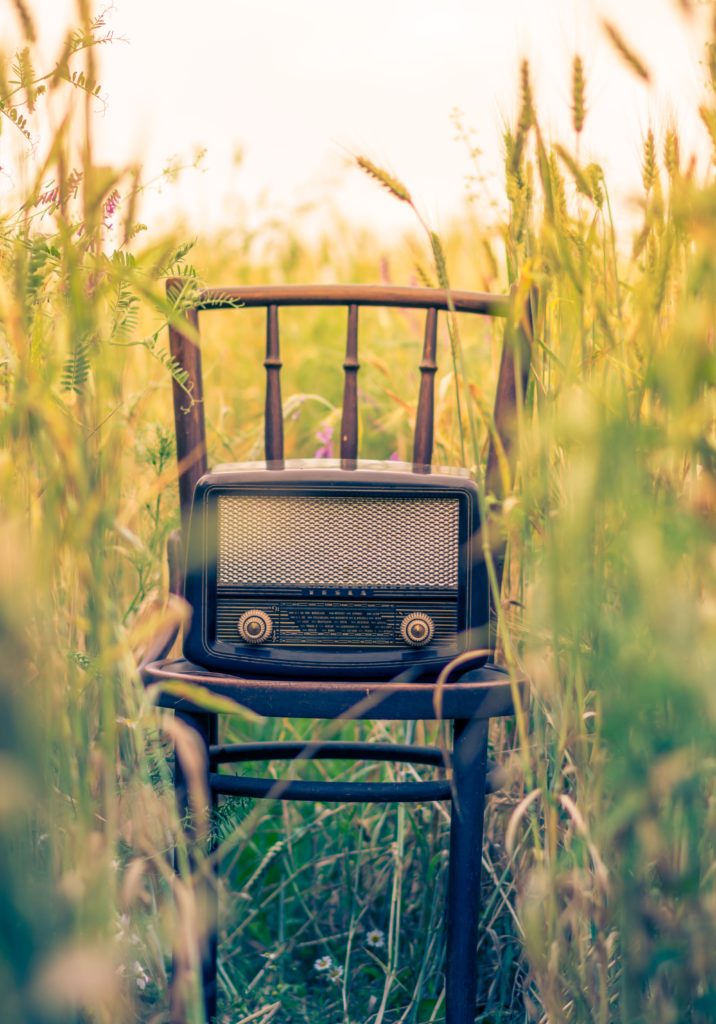
Every trade has its secrets, every job has its tools: the carpenter’s hammer and saw, the plumber’s wrench, the painter’s palette and brushes. In Shakespeare’s time, actors used to carry bags that contained the tools of their art: makeup, costumes, and props that enabled them to switch in and out of character as the drama on stage demanded.
Props are indispensable to create the illusion of reality. As a writer and coach, I’m always searching for ones that will help me create the magic that is good writing, whether it’s a news story, magazine article, personal essay, or fiction.
Props is also an abbreviation for propeller-driven airplanes. Whether they’re on the stage or in the air, props are my metaphors for mental skills and attitudes that will help you achieve excellence in your writing.
Here are ten of them that will keep you aloft and prop you up when the ride gets bumpy.
1. A tightrope. If you’re going to be a writer, you need to take risks. Writers need to be counterphobic, that is, do what they’re afraid to do.
Lee Child, author of the phenomenally successful Jack Reacher series, is familiar with the challenge.
“The beginning of a new book feels like stepping off a cliff into the abyss,” he says. “A long free-fall. One of these days, I’m going to end up flat on my face.”
He does it anyway.
If you’re going to be a writer, you need to take risks. Writers need to be counterphobic, that is, do what they’re afraid to do.
Walk a tightrope every day. Where is the one place in town you’ve never been because you’re afraid to go there? ? It may be a housing project, or it may be the boardroom of the biggest bank in town.
Try a new approach to writing a story. Write a poem even if you’re not a poet.
Ask yourself every day, “Have I taken a risk?”
2. A net. The best writers cast trawler’s nets on stories. They cast them wide and deep.
They interview 10 people to get the one quote that sums up the theme. They spend half a day mining interviews for the anecdote that animates the story.
They hunt through records and reports, looking for the one detail that explains the universal or a fact that captures a person or event.
To write the “Ghosts of Highway 20,” a riveting five-part cold case reconstruction about a serial killer, The Oregonian‘s Noelle Crombie and her colleagues Beth Nakamura and Dave Killen “pored over thousands of police reports and court records.”
Anne Hull of the St. Petersburg Times described a female police officer in Tampa as “a brown-haired woman in a police uniform and size-4 steel-toe boots.” A telling detail, drawn from weeks of observation, “can help explain the sum of a person,” Hull says. In this case, she said, it was “the Terminator meets a ballerina.”
3. Someone else’s shoes. Empathy—the ability to feel what another person feels, to walk in another’s shoes—is the writer’s greatest gift, and perhaps most important tool.
“Compassion is largely a quality of the imagination,” says the Colombian doctor and activist Héctor Abad Gómez. “It consists of the ability to imagine what we would feel if we were suffering the same situation.”
Pulitzer winner Richard Ben Cramer, talking about the reporting he did in the Middle East in the late ‘70s, says he tried to give readers a sense of what it was like to be living in a situation of terror, of life on the edge: “It’s very hard to know what someone would feel in a situation unless you at least feel something of it yourself.”
4. A loom. Writers weave connections for their audiences.
We connect the police report at the station house to a burglarized home in a poor neighborhood.
We connect City Hall with the sewage project.
We connect the characters in our fiction with action, dialogue and point of view.
Writing is a process of making connections, of discovering patterns.
Weave literary threads in your stories, mixing up short sentences with long ones.
Break up the pace with single-line paragraphs in your fiction and essays.
Rely on analogies, similes and metaphors to convey difficult topics, using these devices to connect with your readers’ imaginations.
In her story about the August 2019 mass shooting in Dayton, Ohio, The New Yorker’s Paige Williams used one such rhetorical device to describe a moment after the shooting started.
“One man ran so hard that when he face-planted on the sidewalk he skidded, like a baseball player sliding into second.”
Williams spotted the movement on a surveillance video; “it immediately reminded me of a baseball runner,” she told me. Similes “can make an unfamiliar situation familiar to a reader. A simile involving physical force can impart feeling/sensation.”
5. A zoom lens. Good writers go in close on a subject and then in a single nut graph pull back to reveal, in Nieman Storyboard editor Jacqui Banaszynski’s words, “a tiny bit of context that sets your story in a bigger world: perhaps politics, economics, history, culture.”
Writers need to go in very close. There’s a famous passage in a column by columnist Jimmy Breslin about the light coming in and glinting off a mobster’s diamond pinky ring. Pay attention to the barely noticed details.
David Finkel of The Washington Post and a MacArthur Fellow said he tries “to look at any site that will be the focus of a narrative passage as if I were a photographer. I not only stand near something, I move away. For the long view. I crouch down, I move left and right. I try to view it from every angle possible to see what might be revealed.”
6. Six words.”Tell your story in six words,” is the advice that Associated Press feature writer Tad Bartimus used to give.
By reducing it to the single phrase, shrinking it almost to a line of poetry, you can capture the tension of the story.
You can do it in three words or just one word as long as they sum up the theme of the story.
One classic example, perhaps the shortest short story ever written: “For Sale: Baby shoes, never used.”
7. An accelerator pedal. ”There are some kinds of writing,” William Faulkner said, “that you have to do very fast. Like riding a bicycle on a tightrope.”
Race past your internal censor. Sigmund Freud referred to it as “The Watcher at the Gate.”
This is the voice that says, “You’re an incompetent. You can’t write. That story you wrote yesterday? You’ve lost it. You haven’t done the reporting today. You’re a loser.”
To trick the watcher at the gate, write as fast as you can, which leaves you more time to revise. Take off and don’t look back. Caution: avoid this on highways.
”There are some kinds of writing that you have to do very fast. Like riding a bicycle on a tightrope.”
William Faulkner
8. Scissors. Or their electronic equivalent: the delete key. In “The Elements of Style,” William Strunk Jr. and E.B. White say, “Vigorous writing is concise. A sentence should contain no unnecessary words, a paragraph no unnecessary sentences, for the same reason that a drawing should have no unnecessary lines and a machine no unnecessary parts. This requires not that the writer make all his sentences short, or that he avoid all detail and treat the subject only in outline, but that every word tell.”
Less is more.
How many gallons of maple sap does it take to make a gallon of maple syrup?
Between thirty and forty. New Englanders say.
Boil away the sap.
Don’t be afraid to cut things from your story. If you’ve done the reporting, they will be there, just as the nine-tenths of an iceberg rests below the surface of the sea, a “theory of omission” coined by Ernest Hemingway..
9. A trash can. Isaac Bashevis Singer, the Nobel Prize-winning writer, once said, “If you see something is no good, throw it away and begin again. A lot of writers have failed because they have too much pity.”
“If you see something is no good, throw it away and begin again. A lot of writers have failed because they have too much pity.”
Isaac Bashevis Singer
Writers will have little pity for sources, but feel sorry for the weakest prose because it flows from our keyboard.
. “Hey!” a reporter will protest, “I spent two hours on that lead. I can’t throw it away.” Yes, you can, and if it doesn’t work, you should. Try again, faster this time.
Remember Singer: “I say that a wastepaper basket is a writer’s best friend. My wastepaper basket is on a steady diet.”
10. A bible. These are the sacred writing texts you read for guidance or inspiration. Books or stories that you keep nearby when you’re getting ready to write and are trying to go to the next level of excellence.
The Bible with a capital “B” helps writers, too.
Joan Beck, the late columnist for the Chicago Tribune, “always read a couple of chapters in the Bible every morning. Whether I’m working or not. Those cadences get imprinted in your brain. When you write, you tend to write in those kinds of patterns and rhythms. The cadences—but only in the King James Version—are so effective. You use them as sort of a touchstone.”
When stumped, take inspiration from writers you admire. Here’s a sampling of what I read for inspiration.
- “Clockers” by Richard Price.
- “There Are No Children Here” by Alex Kotlowitz.
- ”On the Pulse of Morning” by Maya Angelou, delivered at President Clinton’s inauguration, 1993.
- “Pull Me Up: A Memoir” by Dan Barry.
- “Writing to Deadline: The Journalist at Work” by Donald M. Murray.
- “Writers at Work: The Paris Review Interviews.”
- “Sourdough: A Novel” by Robin Sloan.
Works by:
- Ernest Hemingway
- Willa Cather
- Roy Peter Clark
- Patrick Radden Keefe
- Honoré de Balzac
- Jill Lepore
- Kathryn Schultz
- Tom Wolfe
- Patricia Smith
- Louise Erdich
- John Updike
- Joan Didion
- Paige Williams
- Jimmy Breslin
- Mark Twain
CRAFT QUERY: Who do you read for inspiration?
May the writing go well.

Photo by Michael Payne on Unsplash
